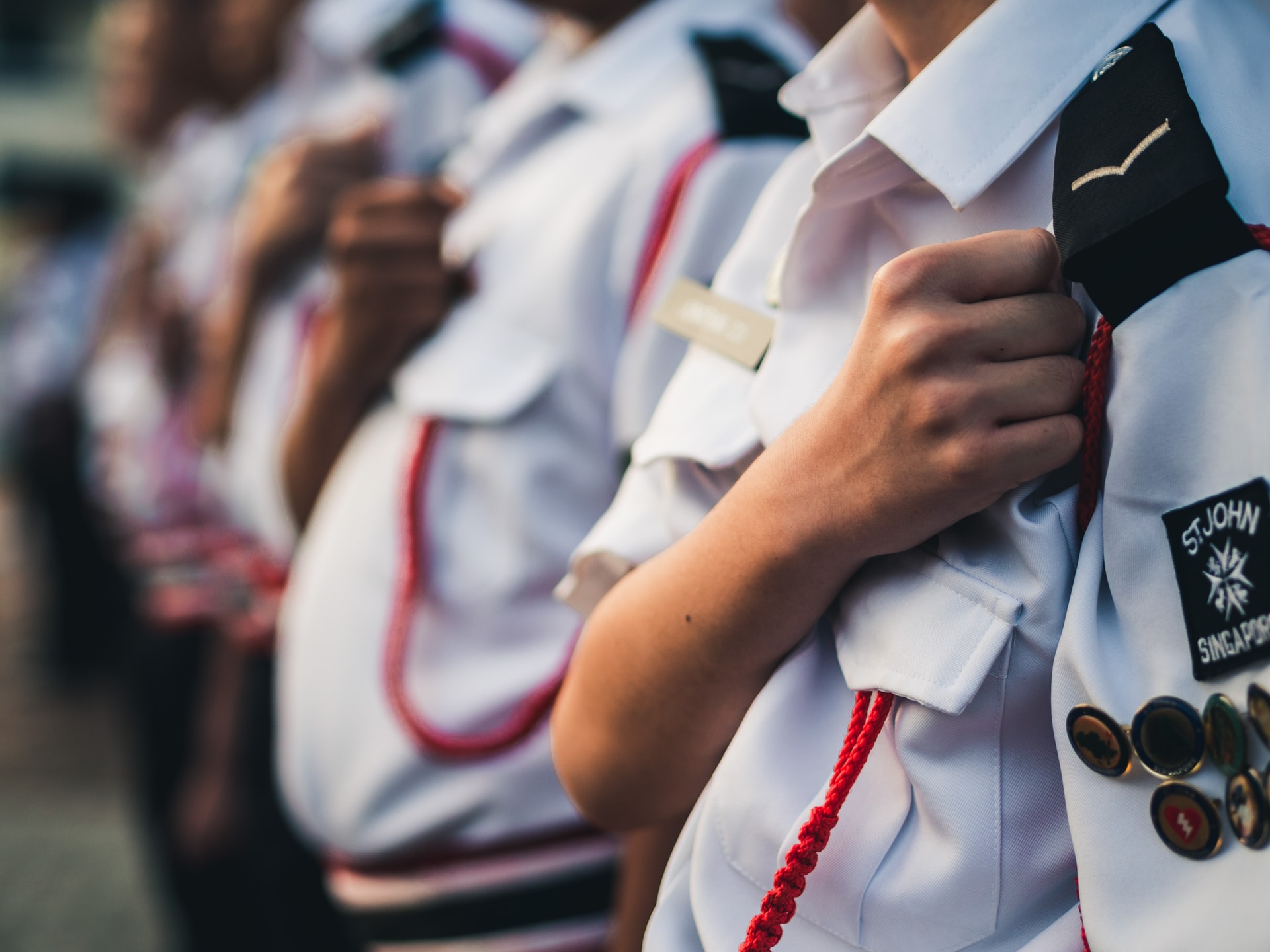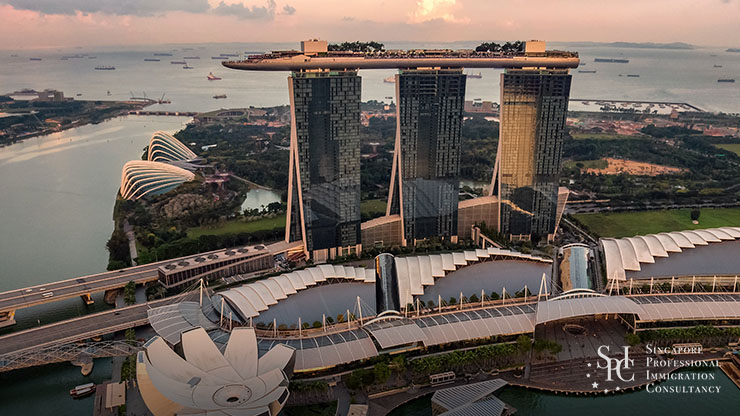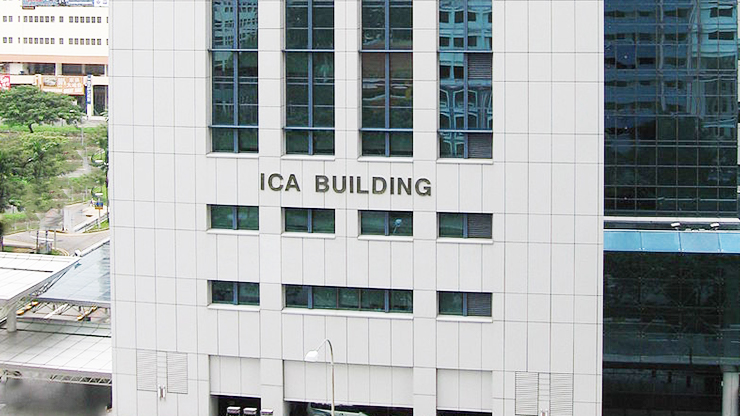National Service is a policy in the Republic of Singapore that is based on the Enlistment Act and is enforced by the Ministry of Defence. The responsibility for National Service falls on all male Singapore citizens and any second-generation permanent resident. The National Service Act first came into practice following Singapore’s independence in 1967 and was instituted to help the Ministry of Defence build up Singapore’s army. It also affects the Civil Defence Force and the National Police Force.
At the age of 16.5, young men will register for National Service but will only begin their active service at the age of 18 years. At that point, they serve as full-time National Servicemen in one of three factions:
- Singapore National Defence Force
- Singapore Police Force
- Singapore Armed Forces
The final part of National Service revolves around yearly training and reservist duties as Operationally-Ready National Servicemen. Reservist duty is compulsory until the age of 50 for ranks of lieutenant and above; other ranks serve until the age of 40. These men can be called to serve NS at any time and anywhere in the world.
During enlistment, cadets undergo the Individual Physical Proficiency Test (IPPT) to determine their suitability for active service. The number of SAF members far outweighs the number of servicemen in the Navy and the Air Force, simply because the SAF needs more personnel.
The Mission of the SAF:
- Enhance Singapore’s peace, and should that fail;
- Secure a swift and decisive victory.
Purpose of the National Service Act
The Ministry of Defence states that the purpose of the act lies in the national interests of the city-state of Singapore. Soon after its independence, it became clear that the army could not rely only on volunteer troops and that conscription would be necessary to maintain a large enough surplus of operationally ready servicemen to successfully defend the island should peacetime come to an end.
All cadets are fully trained for war operations but also to handle local natural disasters or civil unrest within Singapore. The threat of nuclear weapons might make it superfluous to maintain such a large army in such a small nation, but nuclear war is unlikely, and other insurgencies are far more likely. Therefore, the organisation and quality of operationally ready servicemen remain an extremely important goal for the nation of Singapore.
History
The process started shortly after Singapore gained independence; around the late 1960s, during the Cold War, the British Army withdrew its troops from Singapore. This withdrawal of British soldiers led to the Singaporean government implementing a conscription programme to fill the defence needs of the country. Initially, Singapore attempted to build up their armed forces through assistance from other countries, but they were largely refused, so Israel offered some assistance.
Conscription was rationalised in two ways. The first was related to the population. It was estimated that the low number of regulars would not suffice for sufficient defence service. The other reason is related to the need for racial harmony in the country, especially between Indian, Malay, and Chinese communities.
Singapore has always played a military role in history, and it is strongly believed that Singapore’s military role stems from its location. The island is located on a highly strategic spot and played significant roles in previous military engagements like various battles during the Second World War.
Enlistment
Interesting to note, Singaporean conscription does not actually follow the Enlistment Act particularly closely. In practice, only male citizens and second-generation permanent residents are conscripted, and second-generation permanent residents under the age of 16.5 years are usually conscripted where the Enlistment Act makes no stipulation of gender and specifies anyone under the age of 40 can be conscripted.
When a young man registers for National Service, they complete a medical examination that helps to determine their Physical Employment Standard (PES) status. That indicates the vocational groups that they would belong to.
Under certain circumstances, with written permission from their parents, teenagers can opt to enlist for their Full-time National Service at the age of 16.5 years.
As it stands today, the SAF relies heavily on their conscripts. There are around 800,000 reservists and 71,600 active personnel that comprise their active and reserve forces. Active National Service duty supplements the career military force of 38,700 with 42,800 conscripts.
At this point, women are exempt from National Service but are permitted to serve in Singapore military forces. Most of them hold clerical or logistical positions early in their careers, but some can go on to become combat officers. Roles that women can fulfil are still limited, but wide expansion has already taken place.
Deferment of NS
The underlying principle of the National Service in Singapore is the insurance of equity and universality. This underlies fairness towards the vast majority of National Servicemen and subserves the right to choose when to undertake National Service.
That being said, there are specific criteria that pre-enlistees can meet that would allow deferment of NS for the purpose of tertiary education on a full-time basis, up until completion of a Polytechnic Diploma, GCE A Level, or an equivalent. Criteria are as follows:
- Polytechnic, Private School, and Junior College students younger than 19 or 20 years automatically receive a deferment.
- Should an ITE student enter into a certificate level, they will also receive a deferment.
- For the Technical Diploma and Technical Engineer Diploma at ITE, deferment is granted for the academic portion of the course.
- ITE Traineeship Scheme students can receive deferment until they are 19.
- NITEC to HIGHER NITEC students receive deferment until the age of 21. In the case where a student proceeds to the 2nd year of Higher NITEC, a further grace period can be granted depending on their age.
- Students younger than 21 or 22 years who are attending Polytechnic from ITE receive a deferment for the academic stream. Shorter routes will receive priority over longer ones.
Furthermore, national sportsmen who compete elsewhere in the world will be drafted to NS upon return to Singapore. This is not applicable to football.
Exemption
It is exceedingly rare to encounter a case of complete exemption from NS. Usually, this is done only for extreme medical conditions.
Failure to Enlist and Defaulting on NS
Should someone fail to enlist, they can be charged with a crime under the Enlistment Act. A conviction can result in a fine of SGD 10,000 and three years imprisonment. Conscientious objection is not considered an acceptable reason to refuse service. Jehovah’s Witnesses usually receive an automatic sentence and are held separate from other offenders of conscription laws.
For defaulting, there are four tiers of punishment that are dependent on the length of time that the individual has defaulted:
- Two to six years evasion = two to four months jail time.
- Seven to ten years of evasion = five to eight months of jail time.
- Eleven to sixteen years evasion = fourteen to twenty-two months jail time.
- More than seventeen years of evasion = two to three years jail time.
An average of 350 defaulters is normal per year. If they flee the country, many of them are denied entry when they try to return.
Registration Process for New Recruits
At 16.5, young men will register for service.
If you are going to be overseas from three months to just under two years, you need to apply for an exit permit. If you are leaving for two years or more, then you need to apply for the exit permit and provide a considerable bond to ensure your return.
If you are older than 16.5 years, you need to provide documents related to your study status, the income tax statements and employment status of your parents, and the bond. Once the bond is complete, then the exit permit will be granted.
When you mean to enlist, you must complete the registration form very carefully. Registration can commence if:
- You are not studying full-time anymore
- Your course is finished
- You are not eligible for deferment
To complete the online registration, you need the following:
- Personal details
- Bank account information
- Education information
- Information about your Family
- SingPass 2-step verification
- Medical Screening Questionnaire
The last step that you take in the registration process is to book your appointment for the medical screening.
NS Medical Screening
On the day of your medical screening, you will need to take a picture at the photo studio. You also need to complete the e-fitting information so that they have your measurements and can provide the correct equipment beforehand.
There is a medical screening checklist that you need to follow very closely to avoid having to come back again. At the time of your screening, you must have a neat and short haircut, and your hair must not be dyed. If you have vision problems, you should wear your glasses, not contact lenses. You may not have a beard on the day of your test. You need to report to your medical test in sports clothing and appropriate sports footwear.
You should bring two forms of identification, for example, your passport and your Singapore pass. You should also bring your NRIC, your education certificates, a medical screening questionnaire, and other medical documents. The tests take about 4 to 5 hours, so you will need to eat beforehand.
The medical tests include clinical laboratory tests; ear, nose, and throat tests; x-rays; dental examinations; eye examinations, and general clinical examinations. There is also a psychometric test.
If you need to have a medical review, it is usually due to a need for additional information on your medical status or concerning findings during your exam.
Types of Army Service
Civil Defence Service
This service encompasses the main emergency rescue forces in the country, such as ambulance, rescue, and fire services. Training usually lasts for four weeks and takes place at the National Service Training Centre. It takes the form of Basic Rescue Training and also involves maintenance of fitness levels.
While fitness is essential for National Servicemen here, there is also an educational requirement (either a Diploma or Higher NITEC certificate or a GCE Advanced Level certificate). There are also several additional training regimes to complete. The faction will not be deployed in times of war but will be called to service in times of natural or man-made disaster within Singapore. The SAF serves as the army in Singapore, where the civil defence service comprises fire and rescue services.
Police Service (SPF)
National Servicemen who complete their service at the SPF need to learn the Penal Code and all standard police protocols. Following training, they are posted out to various departments within the SPF. In some cases, further training is required. SPF ranks differ from those in the Civil Defence Force and Military faction. The Police force will not be deployed in times of war.
Army Service (SAF)
There are numerous kinds of Basic Military Training. There are several training centres where this type of training can be conducted. The type of Basic Military Training that you undergo will depend on your education and fitness.
This is the largest faction of the uniformed services in Singapore, and the bulk of Full-time NS cadets will train for this program. Able-bodied men, unless otherwise noted, will complete a full spectrum of training in order to maintain peacetime and security on the island. The SAF is equivalent to the army of Singapore and includes the Air Force.
Life of an Armed Services Cadet
The very first part of operations training involves an orientation programme that commences as soon as NS recruits arrive on the army base. Most NS recruits are of military age and will be trained for the purpose to maintain Singapore’s defence should peacetime crumble. Service personnel are held to a high standard, and there are some behaviours that are expected from those who serve NS.
The Minister for Defence is concerned with the well-being of future national servicemen, and the SAF is aware of the stresses associated with conscription. Therefore, steps have been taken to ensure the well-being and security of all new NS recruits during their time served in the army or other factions of NS.
For starters, each NS cadet is assigned two “buddies”. One is chosen by the cadet, and the other is chosen by an officer. These three cadets will be responsible for each other. Furthermore, there is an awareness of the difficulty associated with adjusting to life as a cadet. Counselling services are available to cadets and their families free of charge during the time that they served in the army.
It is important that cadets take responsibility for their units and their surroundings as well as their person. Nails and hair are to be kept short, hygiene is essential, and the barracks and facilities are to be regularly cleaned by the units that occupy them. Any injuries or illnesses must be reported to an officer so that steps can be taken to better the cadet’s health.
For the entire NS duration, while training for operations, cadets will receive three full meals a day plus an additional night snack if they are completing nighttime training. Barracks are equipped with all the amenities and facilities that troops might require for entertainment and further development of their physical fitness. There are sports courts and other entertainment facilities at the ready.
Vacation Leave
Cadets get 14 days of vacation leave annually; if you have not served an entire calendar year yet, then leave is calculated on a pro-rata basis. Leave that is not used during the year will be forfeit.
Medical Leave
Government doctors, private practitioners registered with the Singapore Dental Council of Singapore Medical Council, and Singapore Armed Forces Medical or Dental Officers can issue an official Medical Certificate.
Such a medical certificate, when issued by the SAF, should indicate whether you can rest in the barracks or whether you are required to go home. At times you will be allowed to continue with light duties, and your medical certificate will list the types of duties you are not allowed to do. Any such certificate provided by spiritual healers or traditional Chinese physicians will not be accepted.
In order to initiate authorised medical leave, a cadet has to:
- Have been issued with an official Medical Certificate.
- Send the Medical Certificate to their instructor if they cannot report for duty, or submit it immediately when you return to duty.
Compassionate Leave
Compassionate leave is granted per individual occurrence and can last a maximum of three working days per occurrence. The Head of Department or Unit Commanding Officer grants this kind of leave for the following circumstances:
- Serious domestic problems that require your presence to maintain stability.
- Dangerous or terminal illness of a close family member.
- Death of children, spouse, grandparents, siblings, parents, step-parents, or parents-in-law.
- The imminent death of a family member.
For any additional requirements for a single occurrence, you can substitute them with vacation leave. A Unit Commanding Officer of the Head of the Department can further grant up to four working days of additional leave if the vacation leave time is still not enough.
Per calendar year, you are only allowed a maximum of seven working days total per calendar year.
Academic Leave
The armed forces have made provisions to allow cadets to attend local admissions exercises, interviews and complete tests at universities in Singapore. Arrangements are:
- Block leave is allowed in the latter half of the year.
- The first half of the year contains a common leave window. This may fall in the same period as your post-Basic Military Training block leave.
- Exceptions include during major exercises and the initial BMTC period, but weekends at the BMTC, Specialist and Officer training schools will be allowed.
If a cadet needs to attend interviews or write tests outside of these periods and they have completed essential military training, they can apply for annual leave. However, generally speaking, universities tend to schedule their interviews and tests during these periods.

 APPLY FOR SINGAPORE PR 2023/2024
APPLY FOR SINGAPORE PR 2023/2024 

